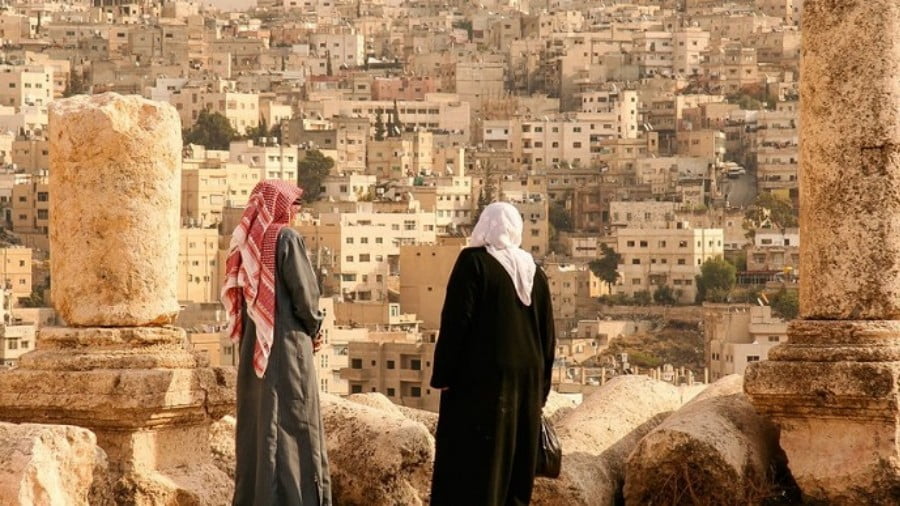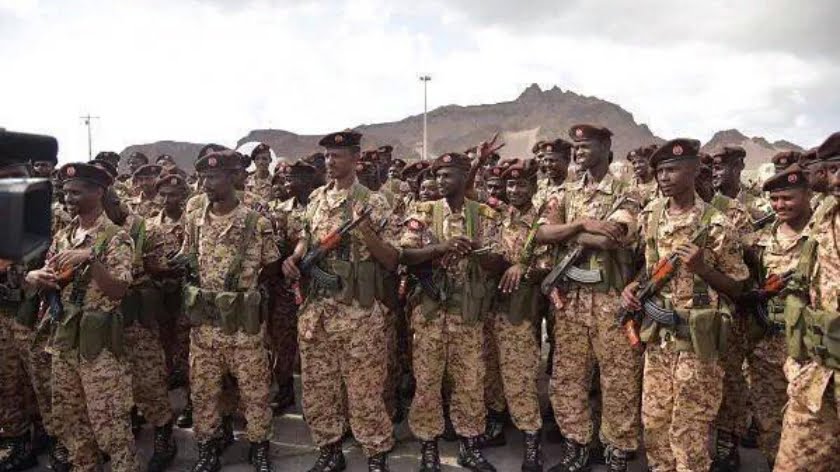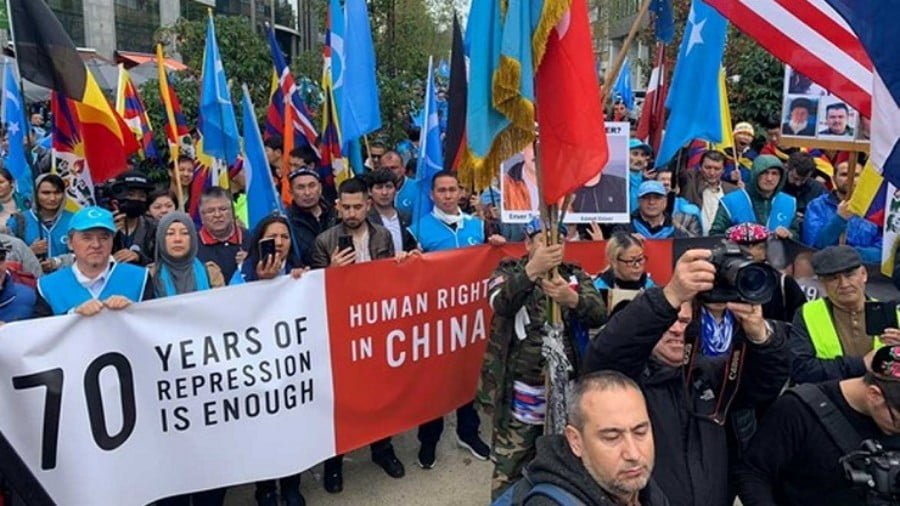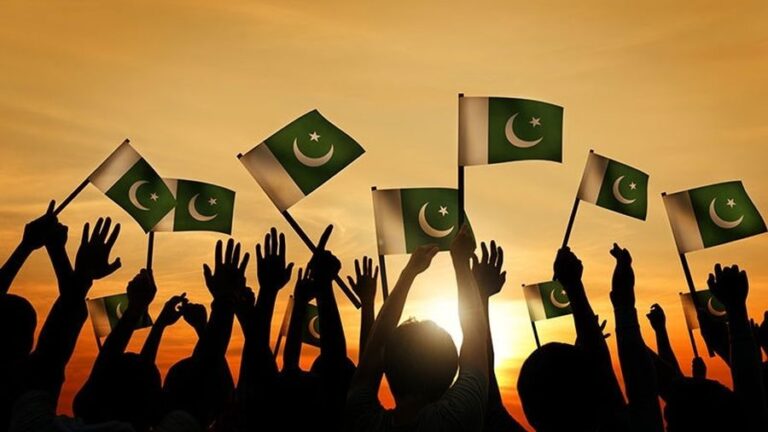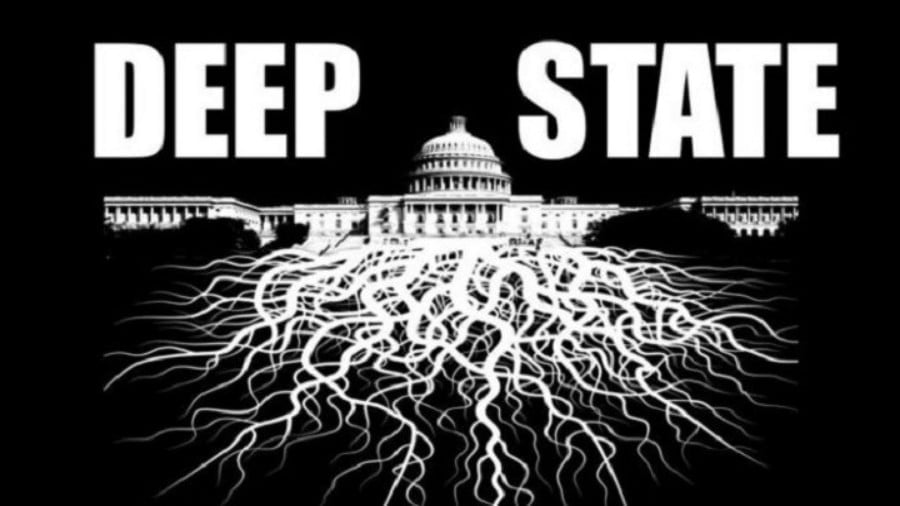Jordan: “Fake Stability” Prelude to “Misery and Mayhem”
Jordan is one of those countries you seldom hear about, however, it is located in a tough neighbourhood. When you think of the “Middle East”, a familiar set of images in a listener’s head, and most of those are not good: violence, conflict, general poverty alongside significant oil wealth, arms, terrorism, and corruption – an unstable mess where the next “load of misery and mayhem” is just waiting to fall on you.
This creates problems for policy makers, journalists and others, as they don’t know what is going on here, and few have Jordan on their bucket list. Nor do they wish to hear positive stories from conflict countries, because these can be seen as supporting one side or another, and that might turn out to be the wrong side, as far as those who bankroll the media outlets are concerned.
So why is it we do not hear more stories about the Hashemite Kingdom of Jordan? One just has to go to the US State Department website and we soon understand why the dearth of news, as Jordan has been basically sold and paid for. The US is the single largest provider of bilateral assistance.
You Get What You Pay-4!
Some highlight show the US as “providing more than $1.5 billion in 2019, including $1.082 billion appropriated by the US Congress to Jordan through USAID in the 2019 fiscal year budget, and $425 million in Foreign Military Financing.” It is not difficult to understand the motivations, as this puts Jordan as a forward operating base, FOB for the US military.
Supposedly the United States and Jordan share the desire “to bring about a comprehensive, just, and lasting peace between Israel and the Palestinians,” and that explain why Jordan said nothing when the Trump Administration recognized the moved of the US Embassy to Jerusalem, which flew in the face of international law. Jordan was “mum” when the US recognized Israeli sovereignty over the Golan Heights.
However, there are a few exceptions, and when Israel, with Washington’s and the State Department’s blessing want to expand sovereignty, at the expense of Palestinian territory, annexation. It is good that Jordan will at times stand up, not for the sake of the right of Palestinians. This is not because of respect for international law because there are so many Palestinians refuges, a dividend from the making of the State of Israel, on its territory, and the Kingdom knows that it does not need a home-grown problem with “these guests”, and other more recent arrived refugees from other countries where the US is involved.
“We will not accept unilateral Israeli moves to annex Palestinian lands and we would be forced to review all aspects of our relations with Israel,” Prime Minister Omar al-Razzaz told the official Petra news agency [back in the summer].
Naturally all that the US Foreign Aid, and cooperation, is being provided under the banner of “fighting violent extremism that threatens the security of Jordan, the region, and the entire globe. For the US, they want to emphasise how “the peace process and Jordan’s opposition to terrorism parallel and assist wider US interests. Officially US policy seeks to reinforce Jordan’s commitment to peace, stability, and moderation.
Location Theory
Naturally it is like Turkey, would never have been an early member of NATO if it has not been on the border of the former USSR, and Jordan would not be receiving large sums of money from the deep pockets of US taxpayers, and if Jordan did not border Syria, Israel and is “very close” to regional hotspots—too close for comfort.
For the US it is the perfect ally, Muslim, autocratic, smack bang in the middle of all the regional conflicts. You would think there should be a lot of interest in what Jordan is doing and what the effect of it is. However, that is far from the case, as most could not even locate it on a map, if there life depended on it. It would be nice to think that most Jordanians just want to live in peace, and they are not interested in regional intrigues.
Yet the Kingdom seems to rise above it all – not exactly prospering, but not getting its hands too dirty. It tries to maintain some semblance of creditability, especially in terms of the Palestinian issue, and its own large Palestinian population.
Naturally, any such move “land grab” on the part of Israeli would be coordinated with the US, as the case with occupied Syrian territory, in accordance with the Middle East plan US President Donald Trump unveiled in January, which endorsed extending Israeli sovereignty over roughly 30 percent of the West Bank.
Netanyahu’s vow to go through with annexation has led to condemnations from a growing list, including Arab states [such as Jordan] and European nations like France, Germany and the UK. Naturally Israel only makes such moves n close coordination with the US, and keeping with the Middle East plan US President Donald Trump unveiled in January, which endorsed extending Israeli sovereignty over roughly 30 percent of the West Bank.
Jordan pays lip service to “higher values”, such as the rights of the Palestinians, to their own, and those in Israel, and especially those living or have the right to claim back their occupied territories. One of the main complaints of Israel’s is not simply the dispossession of their land but that they are treated as second class citizens in that land that is rightfully theirs.
As always, there is a good reason why Jordan is separated from its brethren, kept in some sanitised corner where it is just an accident that it is part of the “Middle East” and the “Arab World”. No one wants to fit it into the usual boxes because it is too useful for them to let it be something else, and let it be the fall guy for when things go wrong.
Jordan is left alone because it is ultimately the model the great powers want other regional countries to follow – but drawing attention to the fact would prove embarrassing, so they won’t say it out loud. Jordan needs to be there to show the model works – but as ever, it can only be judged to work if you have pretty one-sided criteria, to begin with.
Crossroads
Much has been done in the Middle East in the name of supply routes for energy, arms and drugs. Obviously, the ideal Middle Eastern country, in the eyes of the other countries that interfere there, is the one in which corrupt deals with the authorities, which bypass the rule of law, are an accepted part of life, and serve Western interests rather than those of the locals if there is a conflict between those two things.
In June Jordan’s government was forced to resign due to massive protests against yet another IMF-imposed austerity programme – none of which have improved the economies of any country that they have been applied to.
Its location is a two edge sword, political and socio-economic blades, and its situation is further complicated by its challenging neighborhood. This includes the conflicts in Syria and Iraq, the threat posed by extremist actors in the region as well as the impact which the Gulf Cooperation Council’s crisis over the blockade of Qatar has had on Jordan.
King Abdullah II of Jordan has made economic reform a key priority since ascending to the throne, but despite the “more consolidated reform effort under [his] new regime,” the promised reform has not materialized.
There are many reasons, staring with new government is up against the same forces which prevail in Greece – it has to promise the earth, structural adjustments, corruption, and the prevailing rent-seeking culture. Reform is talked about however rarely implement, other than in terms of paying lip service. Jordan like so many other countries will never be allowed to do things differently because the economic faculties long ago weeded out anyone who might propose different policies to the ones which keep failing, “again and again”, as their credibility rest on removing alternatives to that failure.
So, to shore itself up the new Jordanian government, popular but dim, it is using the usual trick of blaming the previous government for deep-rooted, longstanding problems without actually addressing those underlying problems. Its plight sounds very familiar, thinking of Lebanon.
And as anywhere, austerity measures and “structural adjustment” policies are never popular, but the reason they have been such a bitter pill to swallow is that most Jordanians view the rising public debt as a result of corruption and mismanagement of public funds. And failing to deliver on promises, of reform, socio-economic, threatens Jordan’s stability, and that in turn threaten the US-lead Western project of using Jordan as the spear point into the larger region.
The US perceives Jordan as a buffer zone… and “wedged between Israel, Syria, Iraq, and Saudi Arabia, has made it vulnerable to the strategic designs of its powerful neighbours, but has also given Jordan an important role as a buffer between these countries in their largely adversarial relations with one another.”
In theory, Jordan’s relative peace could make it into what it positions itself as: the honest broker between regional states, albeit strongly on the Arab side. But eventually, that would mean bigger countries actually listening to Jordan, and taking a lead from it. Middle Easterners could run their own affairs as well as anyone else, even Western countries; for that very reason, it will not happen.
Too much now depends, for too many actors on keeping Jordan hooked on foreign assistance and military support, and the people distracted with never ending promises of reform.
Jordan has come to be too dependent on outside funding to its ruin. The government committed to various International Monetary Fund (IMF) and World Bank programs targeting different economic areas and demanding a set of free-market policies in return may be its [eventual downfall].
Thus, Jordan knows its place and will stay in it, hoping it can hang on, and nothing “rocks-the-boat”. So once again everyone goes on their merry way, doing their best to pretend right is wrong and vice versa, laughing all the way to the bank. The various concepts of anti-corruption, reform and civil society sound good, however, with no real meaning for the populace and in reality.

